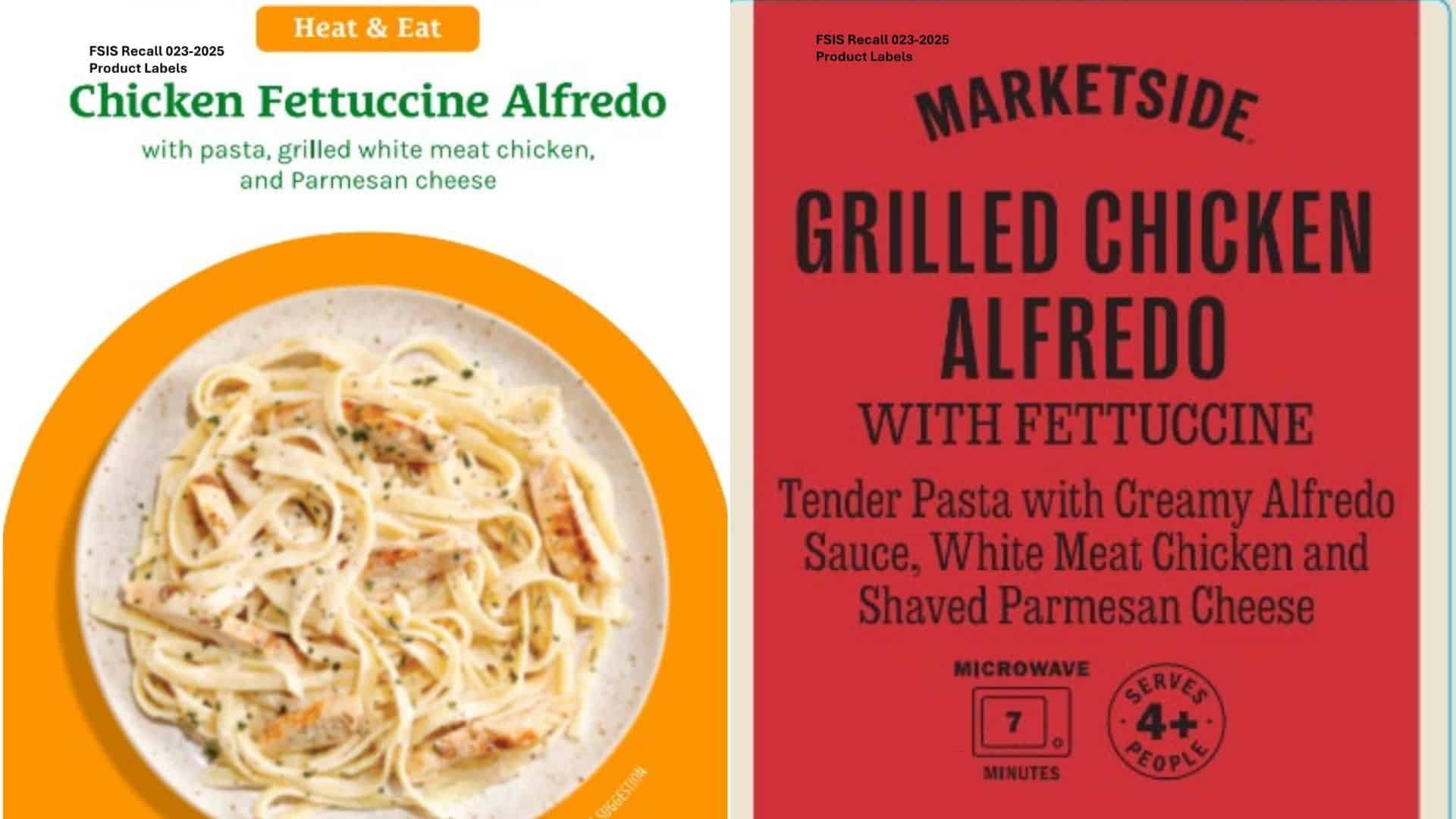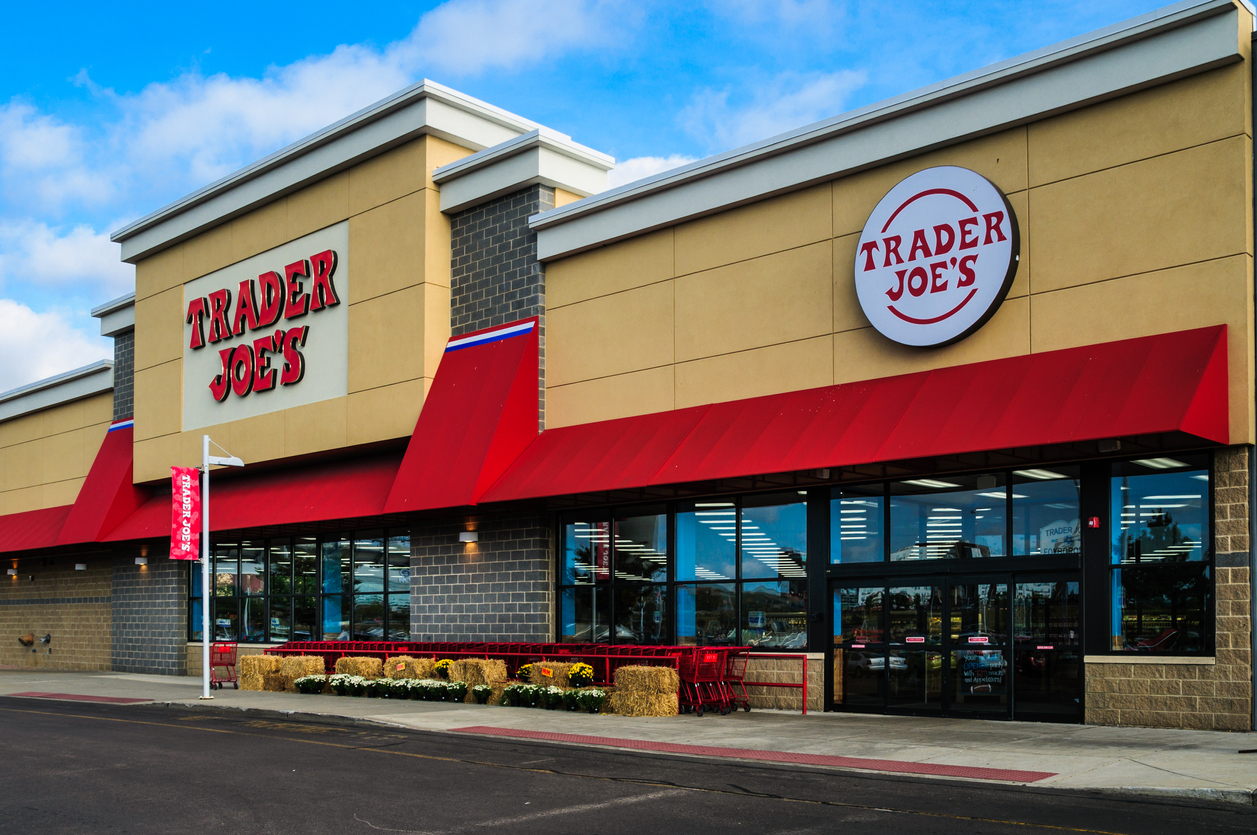USDA Issues Health Alert: Deadly Listeria Linked to Frozen Meals Sold at Walmart and Trader Joe’s


The U.S. Department of Agriculture’s Food Safety and Inspection Service (FSIS) has issued a health alert after frozen meals sold at Walmart and Trader Joe’s were linked to a deadly listeria outbreak. The warning follows earlier recalls tied to contaminated pasta, sparking urgent concern for consumer safety and raising questions about the reliability of ready-to-eat meals.
The USDA Warning

The USDA’s Food Safety and Inspection Service has flagged ready-to-eat pasta meals potentially contaminated with Listeria monocytogenes. The alert stresses that consumers should avoid eating these products and check their refrigerators and freezers immediately. The FSIS is actively coordinating with the FDA, the CDC, and state health officials as the investigation unfolds.
Where It Started

This latest alert builds on an earlier recall in June when FreshRealm recalled chicken fettuccine alfredo products due to listeria contamination. Genetic testing has now confirmed that the pasta used in newer frozen meals sold nationwide is linked to the same outbreak strain. Health officials warn the recall points to a broader contamination problem in the supply chain.
Products Affected at Walmart

At Walmart, the alert applies to 12-ounce clear plastic trays labeled Marketside Linguine with Beef Meatballs & Marinara Sauce. The products carry “best if used by” dates ranging from September 22 to October 1, 2025, and bear establishment numbers EST. 50784 or EST. 47718. Consumers are urged to discard these meals or return them to the store.
Products Affected at Trader Joe’s

Trader Joe’s customers are warned about 16-ounce trays labeled Cajun Style Blackened Chicken Breast Fettuccine Alfredo. The affected meals have “best if used by” dates of September 20, 24, or 27, 2025, and bear establishment number P-45288. The FSIS advises customers not to consume these products, which may still be sitting in home refrigerators.
How Listeria Spreads

Listeria monocytogenes thrives in cold environments, which makes frozen and refrigerated foods particularly risky. Once present in a facility or ingredient, the bacteria can spread quickly across multiple product lines. Because Listeria survives freezing, meals that appear safe can still cause illness long after purchase if contaminated.
Who Is Most at Risk

Listeriosis most severely affects older adults, pregnant women and newborns, and people with weakened immune systems. While healthy individuals can still become sick, these groups face the highest risk of severe infection, hospitalization, or death. Pregnant women, in particular, may experience miscarriage, stillbirth, or life-threatening infections in their infants.
Symptoms to Watch For

According to the CDC, listeriosis often begins with fever, muscle aches, nausea, and diarrhea. As the infection progresses, symptoms may include stiff neck, confusion, loss of balance, and seizures. High-risk individuals who develop flu-like symptoms within two months of consuming recalled products should seek medical attention immediately and inform providers about possible exposure.
What Consumers Should Do

Consumers who purchased these meals should not eat them under any circumstances. The FSIS advises people to throw them away or return them to the place of purchase. Families are also encouraged to sanitize refrigerators and surfaces where the products were stored, since Listeria can persist in household environments.
Food Safety in Focus

This latest listeria outbreak highlights how fragile the food supply chain can be. Recalls and alerts serve as essential safeguards, but they also underscore the need for vigilance in manufacturing and consumer awareness at home. For shoppers, trust in ready-to-eat meals now comes with a reminder: food safety begins long before it reaches your table.
